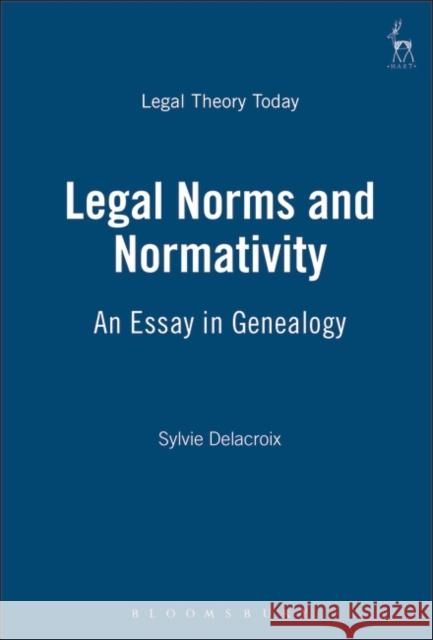Legal Norms and Normativity: An Essay in Genealogy » książka
Legal Norms and Normativity: An Essay in Genealogy
ISBN-13: 9781841134550 / Angielski / Twarda / 2006 / 242 str.
This book offers a -genealogical- explanation of law's normativity. The term -genealogical- conveys a commitment to a non-metaphysical type of enquiry. While it explains how law, as a normative phenomenon, comes about, it does not seek to ground law's normativity in anything but the context of social interaction giving rise to it. Legal normativity is brought about on a daily basis. Whether in revolutionary circumstances or in the quotidian need for judges, lawmakers, or citizens to balance law's demands with those of morality or prudence, our ability to bind ourselves through law ultimately depends on our capacity to articulate a better way of living together, and to commit ourselves to it. These efforts of assessment and articulation depend, in turn, on our conception of normative agency. Assert the need to trace the truth of ethical judgments to some independent moral -facts- conditioning their objectivity, and you will get a different understanding of what it is we are doing when we dispute law's authority in the name of moral values. Tracing the truth of moral judgments back to our own social practices not only affects the nature of disagreement, it also dramatically increases our responsibility when, as lawmakers, judges, or citizens, we take the law into our own hands and confront it with our moral expectations.











